
|   |

|   |
 e-mail: ukb7@rediffmail.com The plain speaking puppets Photos courtesy: Sudip Gupta April 4, 2021 Puppet theatre has been a very ancient form of dramatic art in the East, both in China and India. Consisting of rod, or string, or glove, or shadow puppets, or even their mechanized versions, there has to be always a puppeteer to manipulate the puppets for instilling life in them. (This has always invited interesting comparisons with the human condition on earth: are men all puppets controlled by an Invisible Master from beyond the clouds, or, are the vaunting, “self-regulated’ human beings without any existential purpose in life?) Leaving that question out of one’s domain for a moment, one can concentrate upon a fascinating point made by Sergei Obratztsov, the world’s greatest puppeteer (after whom Moscow’s state puppet theatre, next to Bolshoi’s, is christened Obratztsov Theatre). He observed that although puppets entirely mimic human dialogue as delivered on theatre stage, the puppet can get away by making the most funny or taunting or even atrocious comments on human life and society, and still nobody would mind. Puppets can make hyperbolic remarks and perfectly get away with them, by eliciting only guffawing laughter and leaving hardly any malice behind! 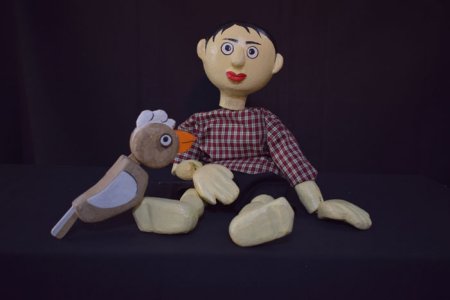
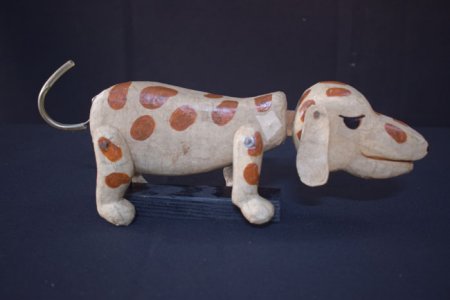
Chi Chi Land, a puppet play mounted on March 21 (incidentally, also the World Puppetry Day) by Kolkata’s well-known Dolls Theatre, was a most eloquent case in point to illustrate the master puppeteer’s observation. Written by Debiprasad Sengupta, its story had three pivotal points of a perfectly funny children’s story, namely, two innocent brothers’ indulging in child like quarrels on being left-handed or right-handed in habits; their falling apart (under external provocation) into dividing their parental land between themselves with a wall erected in between; and their eventual (again being provoked) resolve to seriously fight against each other starting with stones and slings, and ending with guns, canons and missiles. All these sad events leave their growing children utterly bewildered as to why they can no longer play among themselves, because of the divisive wall and the frightening uproar made around them by the swishing weapons of the adults! Conceived by the gifted young puppeteer Sudip Gupta, an awardee of Sangeet Natak Akademi, the play presented very eloquent rod-puppets comprising the two playful brothers and their grown-up counterparts and one real life theatre actor Tom Tom (played well by Utsav Rauth with a stylish make-up) as the arch villain – with crafty interventions and making thereby his own pots of money! – made the perfect staple for enjoyment of children and adults alike. This was clearly evident among the surging viewers on a post-endemic Sunday proscenium audience. Mingling skillful traditional puppetry with real action human characters is a recent trend that has emerged among contemporary puppeteers and Sudip made full use of the trend to make his boisterous children’s tale to make its points! 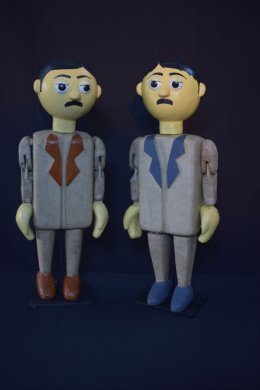
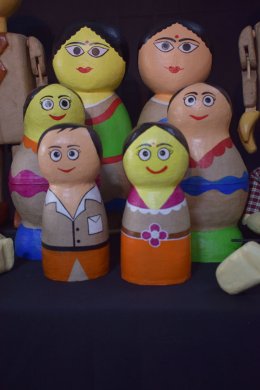
What came through, loud and clear, were three messages. One, the adults make their own divisive politics (right-wing and left-wing, or whatever!) and usually make a mess of it, fighting usually with each other which eventually can be ruinous for all. Two, such divisive strategies can lead to even partition of their ancient lands, only to spread more agony and distress among their progeny. Three, the inevitable arms race can be substantially disastrous for each party. And, who suffers most without any fault of theirs? It is always the future generation! Here is Sudip’s own summing-up, “I often have wondered whether we all are controlled like puppets by an invisible hand. So, in the final analysis, my Chi Chi Land is no new land at all; it is just another country among the comity of nations in the world where men have grown envious of each other with unequal competition among themselves. The puppets of this play are real men, just dressed as dolls. In the design of the puppet play, this has been the prevailing thought in my mind and is the primary symbolic imagery in my play, where there is a subtle political metaphor as well, incomprehensible to the innocent puppets!”  In the collaborative effort, besides the script, design and direction by Sudip Gupta, the puppeteers who helped were Prodip Khan, Sameresh Bej, Srila Bhattacharjee, Shreeparna Bhanja Gupta and Souparno Gupta. The voices were by Kallol Chakraborty, Priyako Roy, Prasenjit Banerjee, Arin Khan, Shreeparna Bhanja Gupta, Souparno Gupta, and Shinjaan Basak. Puppets were made by Prodip Khan, Sameresh Bej, Amitavo Sengupta, Utsav Rauth, Tunak Banerjee, Srila Bhattacharjee, Shreeparna Bhanja Gupta and Suchitra Das. A very worthwhile pointer to the current world scenario! 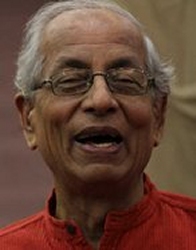 Dr. Utpal K Banerjee is a scholar-commentator on performing arts over last four decades. He has authored 23 books on Indian art and culture, and 10 on Tagore studies. He served IGNCA as National Project Director, was a Tagore Research Scholar and is recipient of Padma Shri. Post your comments Pl provide your name and email id along with your comment. All appropriate comments posted with name and email id in the blog will also be featured in the site. |